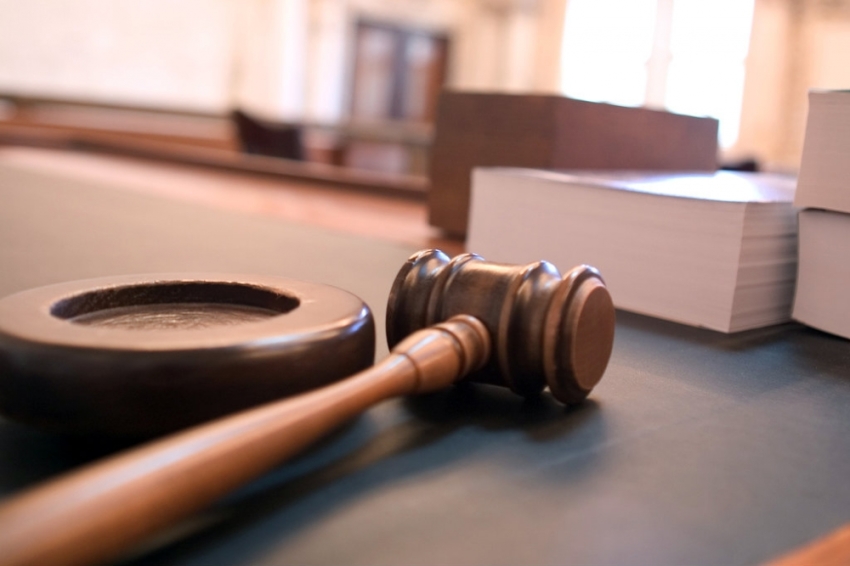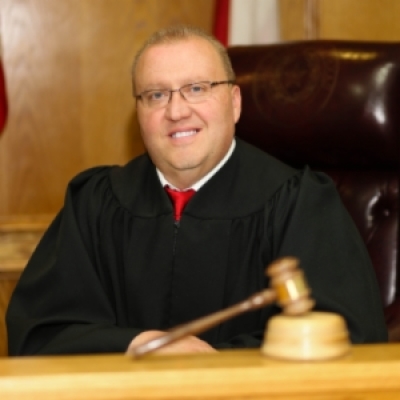Fifth Circuit allows chaplain-led courtroom prayers to continue after being ruled unconstitutional
Legal battle continues in years-old First Amendment case

A federal appeals court sided with a Texas justice of the peace last week, allowing him to continue chaplain-led invocations before state court hearings while the lawsuit against him is adjudicated after his courtroom prayer tradition was ruled unconstitutional by a lower court.
A three-judge panel of the U.S. Court of Appeals for the Fifth Circuit issued a stay that permits Montgomery County Justice of the Peace Judge Wayne Mack to continue offering chaplain-led invocations at the beginning of his court sessions.

At issue is whether Mack is entitled to a stay pending appeal after U.S. District Judge Kenneth Hoyt ruled in May that the tradition of having volunteer chaplains perform courtroom prayers violated the Establishment Clause of the First Amendment.
"The judge has made a strong showing that the district court erred," reads the Fifth Circuit's opinion. "The other three stay factors also favor the judge. We therefore issue the stay."
First Liberty Institute, a national religious liberty legal nonprofit, represents Mack.
“Judge Mack is grateful that the Fifth Circuit allowed him to continue following our nation’s long history and tradition of opening court proceedings with prayer,” First Liberty Institute Deputy General Counsel Justin Butterfield said in a statement.
“We agree with the Fifth Circuit’s conclusion that prohibiting the prayers was wrong,” he continued. “It’s time for the Freedom From Religion Foundation and the State Commission on Judicial Conduct to end their harassment of Judge Mack.”
Mack, a Christian, established the Justice Court Chaplaincy Program to allow local faith leaders, primarily Chrisitan, to open courtroom proceedings with a non-mandatory prayer, short message or devotional.
Courtroom attendees are allowed to leave during this time if they do not wish to participate.
Though the chaplains are predominately Christian, the chaplaincy program included leaders from multiple faiths, including Sunni Muslim, Buddhist and Hindu religious leaders.
The judge was sued by the secular legal group Freedom from Religion Foundation, arguing that holding prayers in the courtroom is an unconstitutional endorsement of religion. Unlike the district court, the Fifth Circuit was less sympathetic with the group's arguments.
“The Supreme Court has held that our Nation’s history and tradition allow legislatures to use tax dollars to pay for chaplains who perform sectarian prayers before sessions,” the Fifth Circuit ruling added. “If anything, Judge Mack’s chaplaincy program raises fewer questions under the Establishment Clause because it uses zero tax dollars and operates on a volunteer basis.”
Mack is grateful the stay was granted so the chaplaincy program can at least temporality continue.
“I am so very grateful that we have our chaplaincy program in place to assist with helping families in our county through terrible tragedies and to provide a moment of perspective as our court begins proceedings,” Mack said in a statement. “I am pleased that this program can continue while we are presenting our case to the 5th Circuit.”
FFRF initially challenged the courtroom prayers in a lawsuit filed in 2017. The case was refiled in 2019.
Annie Laurie Gaylor, FFRF co-president, said in May that the "courtroom is not a church” and a “judge’s bench is not a pulpit.”
First Liberty Institute said Mack followed “a long tradition of opening courts, including the U.S. Supreme Court, with a ceremonial invocation."
The battle over the chaplaincy prayer program began in 2014 when FRFF initially wrote a demand letter to Mack.
In response, Mack wrote an open letter to “Pastors & People of Faith,” arguing the chaplaincy program was under "national and local attack" by those that "believe that God & Faith has no place in public lives and service.”
Judge Mack promised to institute "religious values within the office" and open his courtroom with prayer during his 2014 Republican primary campaign for justice of the peace for Montgomery County Precinct 1.
The judge has implemented various faith-based initiatives, such as the Justice Court Chaplaincy Program and prayer breakfasts.
He also serves as a coroner for Montgomery County and carries out death investigations.
Emily Wood is a reporter for The Christian Post. She can be reached at: emily.wood@christianpost.com



























